SOU・SOU Diary /Staff's Diaries
"Similar words / Li Xi Xi"
Japanese, everyone's casual use,
There are many things that have similar words, similar shapes,
Which is which I always get lost and doubtful,
It is hard work every day.
In the meantime, I got an interesting book.
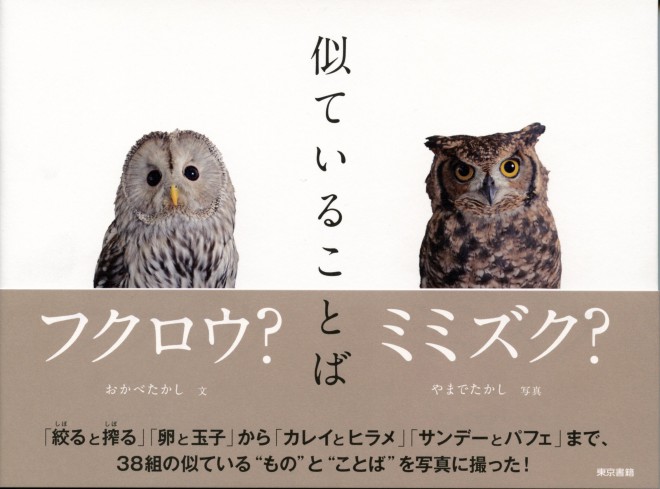
[Similar words"
Author: Takashi Okabe · sentence / Takashi Yama · Photography
Publisher: Tokyo Bookcase
It explains the difference in words in the picture, so it was very easy to understand and fresh.
I tried to take some "similar words" that I was concerned about by my stimulus.
◆ What is different between "bright" and "red"?
· "Brightening" becomes bright in the morning sun
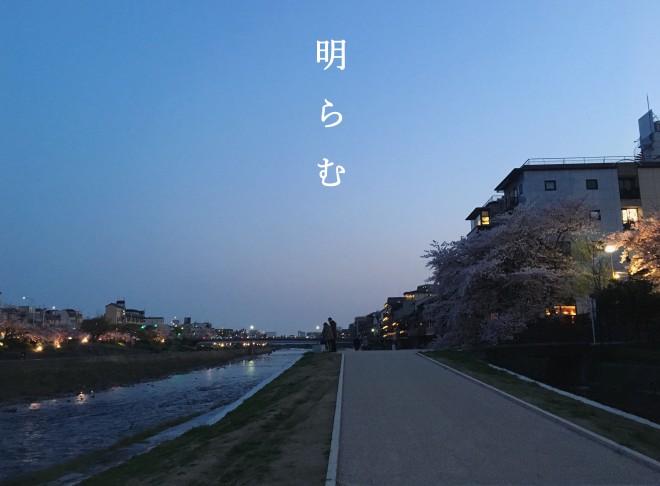
· "The sky turns red with sunset"
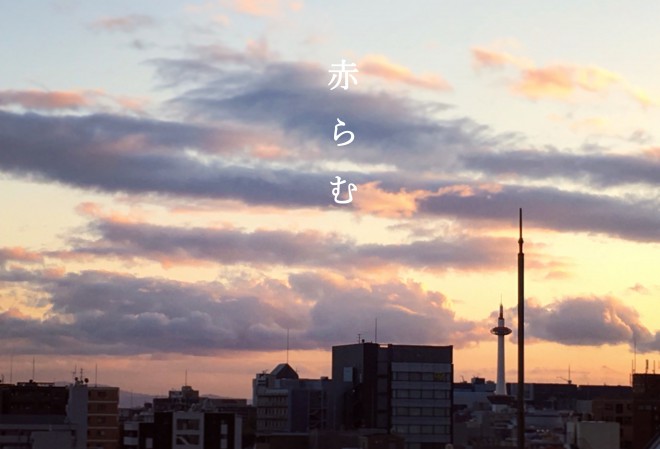
"Akamu" can be expressed as "bright" and "red"
"Aka" of "brightness" is a word expressing a sense of light,
"Aka" "Red" means color "red" and "Reddish" means red.
◆ What is different between 'symmetric' and 'contrast'?
· It is "symmetrical" that it is in equilibrium
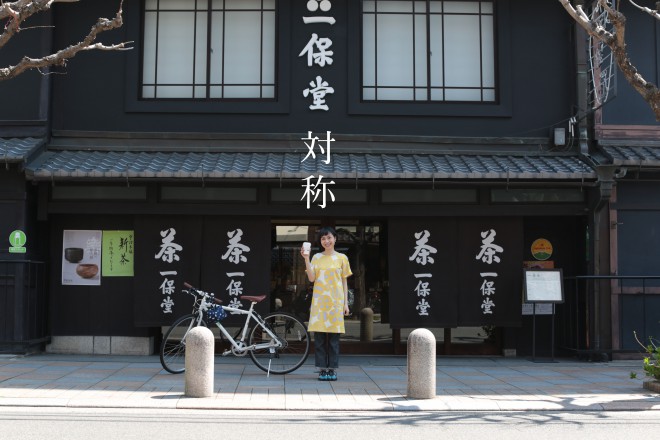
· The fact that the difference stands out is "contrast"
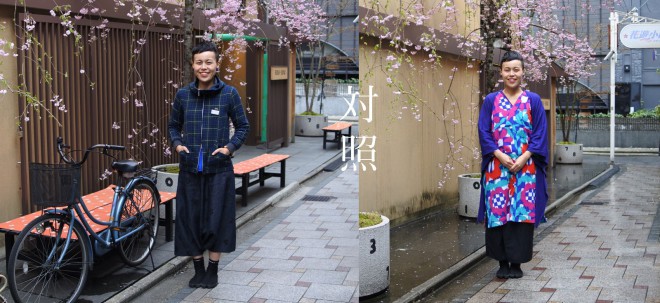
"Symmetric" expresses the same composition on the left and right as "symmetrical"
The building of the Kyoto Ichimodo tea room in the photograph is just a symmetrical structure.
On the other hand, "control" is a word used when comparing, or when the difference between them is outstanding.
There is a stark contrast between the neat Le Coq Sportif look of staff member Owada and the glamorous Kikoromo.
◆ What is different between "use" and "use"?

· "Use": to use for its original purpose
"Use": to use outside the original purpose
As shown in the photo, you can use Handkerchief by wiping your hands.
And Handkerchief proposed by Isemomen Cotton
If you try to use it as a Bookcover or a lunch box wrap, it means "use".
◆ What is different between 'show' and 'represent'?
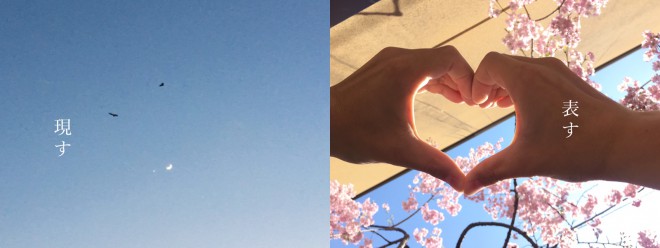
· "Reveal": to appear
"Represent": to express
"Reveal" is used to show the moon and the sun,
"Represent" is used when expressing what you think in your heart like a heart ♡ sign.
◆ What is different between "forest" and "forest"?

· "Hayashi": What human beings are growing
"Forest": something excited with nature
Speaking of the difference between forest and forest, the difference in the number of "trees"
I thought that "small ones are forests and big ones are forests"
Actually it seems not.
"Hayashi" is the word which "raw" changed, because people are growing forest.
There is a theory that "forest" makes it a forest from "it is exciting".
◆ What is different between "leg" and "leg"?
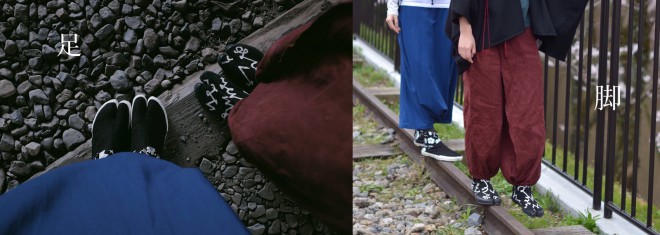
"Foot": part from the ankle to the bottom
"Leg": part from the thigh to the bottom
Differences between "legs" and "legs" can also be seen in words other than Japanese.
In English, "foot" is "foot", legs are "leg".
In Italian, "foot" is "piede", "leg" is "gamba (gamba)".
By the way, it seems that Gamba of the J League team "Gamba Osaka" comes from this Italian.
Things that are similar are confusing.
Although it tends to be avoided,
If you compare this way, there are also interesting ones.
If you notice similar things, why do not you take interest as "oh, alike?"
There must be various discoverings.
- Articles staff (shosho) recently wrote
- Related article
-
Shopping Guide
Inquiries
Customer Service|12:00-17:00 ※Closed on Wednesdays and Sundays
<Address>
578-1 Nakanocho, Nakagyo-ku, Kyoto,Japan 604-8042, 3F
SOU · SOU netshop
 Info
Add as new friend
Info
Add as new friend



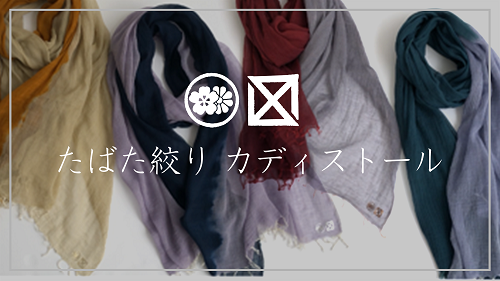
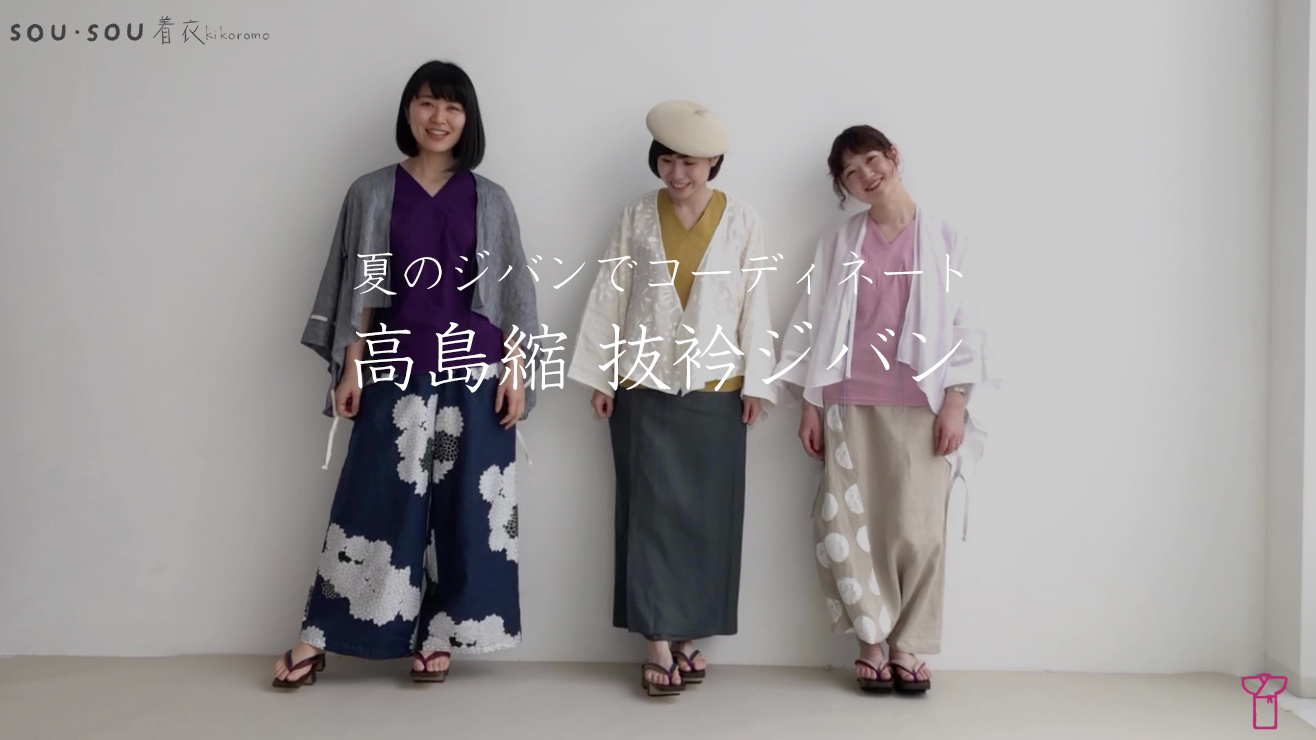

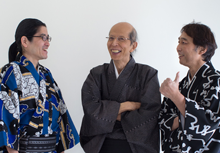

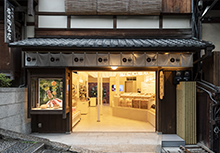



5 comments
great!
The contents are summarized in a very easy-to-understand manner, and it was studied.
The picture is also wonderful.
While being a Japanese, I thought that I do not know too much about Japanese.
What is the difference between Japanese and your native language?
And I morning think suddenly.
Thank you for the new awareness.
Dear okame,
thank you for your comment!
I think that the difference between "Japanese" and "mother tongue" is an interesting theme!
Also, "mother tongue" and "mother tongue" are also different.
With an interesting proposal from okame, we can have a warm-hearted weekend,
Thank you!
Ni Hao! Always a pleasant awareness & reading discovery articles, curiosity is tickling.
From the latter half of the 1950s, in the early 60 years, in the Kansai and the Kanto, "natto" seems to be different. When he came out of Tokyo, my father from Kansai told juniors to buy "natto" and the one put out before my eyes was the sticky leek. My father's "natto" was "Kanpiso", so he seems to have received a considerable culture shock. I read your article and remembered that.
And still, there are times when the application of kanji for "compassion" and "hapt" can become "!?" Depending on the time and in some cases. Japanese is difficult!
Kanji "old" used in China and Japan - It is not used in very good meaning in Japan, but as in China, "maturity" is "mature" and "respect" is put in respect for people and things think. You put "old" in front of a person's name. Personally I think that this one is better, it is a stylish way of being used. This is cool among China!
Hello Xiao pen
I am always grateful for your help!
The story of "natto" and "old" was very funny and stimulating.
By the way, in personal understanding, the difference between "compassion" and "to stand up"
I think that it is close to the difference between "to store" and "to organize".
Please also tell me a lot about cool Japan again.
The theme of this time is also interesting!
Many of the topics covered happened to be ones Accidentally recognized, so I read them while nodding along.
The pictures were very nice and I also felt sense. In my sense, the forest and the forest of the photo were opposite ~.
This book, I will try it ☆